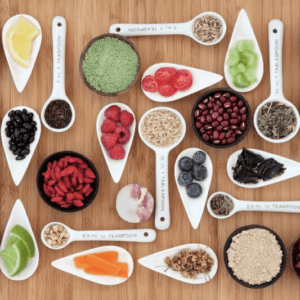Added sugar is one of the worst ingredients in the modern diet, as large amounts can harm your metabolic health.
High sugar intake is linked to numerous ailments, including obesity, type 2 diabetes, heart disease, and many forms of cancer.
If you smoke or abuse drugs, tackle those problems first. Diet and exercise can wait.
If you drink alcohol, do so in moderation and consider avoiding it completely if you tend to drink too much.
Extra virgin olive oil is one of the healthiest vegetable oils.
It’s loaded with heart-healthy monounsaturated fats and powerful antioxidants that can fight inflammation.
Extra virgin olive oil benefits heart health, as people who consume it have a much lower risk of dying from heart attacks and strokes.
Doing aerobic exercise, also called cardio, is one of the best things you can do for your mental and physical health.
It’s particularly effective at reducing belly fat, the harmful type of fat that builds up around your organs. Reduced belly fat should lead to major improvements in metabolic health.
Eating enough protein is vital for optimal health.
What’s more, this nutrient is particularly important for weight loss.
High protein intake can boost metabolism significantly while making you feel full enough to automatically eat fewer calories. It can also reduce cravings and your desire to snack late at night.
Sufficient protein intake has also been shown to lower blood sugar and blood pressure levels.
Sunlight is a great source of vitamin D.
Yet, most people don’t get enough sun exposure.
In fact, about 41.6% of the U.S. population is deficient in this critical vitamin.
If you’re unable to get adequate sun exposure, vitamin D supplements are a good alternative.
Their benefits include improved bone health, increased strength, reduced symptoms of depression, and a lower risk of cancer. Vitamin D may also help you live longer.
Vegetables and fruits are loaded with prebiotic fiber, vitamins, minerals, and many antioxidants, some of which have potent biological effects.
Studies show that people who eat the most vegetables and fruits live longer and have a lower risk of heart disease, type 2 diabetes, obesity, and other illnesses.
When you’re exposed to bright lights in the evening, it may disrupt your production of the sleep hormone melatonin.
One strategy is to use a pair of amber-tinted glasses that block blue light from entering your eyes in the evening.
This allows melatonin to be produced as if it were completely dark, helping you sleep better.
Meat can be a nutritious and healthy part of your diet. It’s very high in protein and contains various important nutrients.
However, problems occur when meat is overcooked or burnt. This can lead to the formation of harmful compounds that raise your risk of cancer.
When you cook meat, make sure not to overcook or burn it.
Drinking enough water can have numerous benefits.
Surprisingly, it can boost the number of calories you burn.
Two studies note that it can increase metabolism by 24–30% over 1–1.5 hours. This can amount to 96 additional calories burned if you drink 8.4 cups (2 liters) of.
The optimal time to drink it is before meals. One study showed that downing 2.1 cups (500 ml) of water 30 minutes before each meal increased weight loss by 44%.













